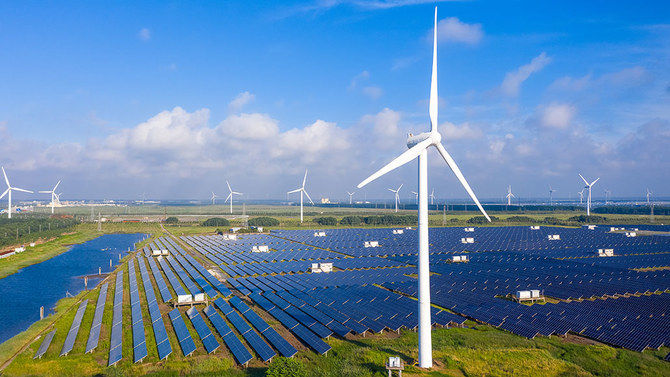How Are Saudi Regulations Evolving to Support Green Energy Projects?
- Elaqat Team
- Aug 22, 2025
- 4 min read
Saudi Arabia, historically a global leader in fossil fuels, is undergoing a profound and rapid transformation. Driven by its ambitious Vision 2030, the Kingdom is recalibrating its economic engine to embrace diversification and sustainability.

At the heart of this shift is an evolving regulatory landscape designed to aggressively support and attract investment in green energy projects. This strategic evolution is not just about meeting environmental targets; it’s about securing a new, prosperous future.
What Is the Driving Force Behind Saudi Arabia's Green Energy Shift?
The Kingdom's push towards clean energy is a multi-faceted response to global trends and national strategic goals. It’s a proactive measure to ensure long-term economic stability and environmental resilience.
Vision 2030: This national blueprint, launched by Crown Prince Mohammed bin Salman, is the primary driver. It outlines a goal to generate 50% of the country's electricity from renewable sources by 2030, with the other half coming from natural gas. This requires a massive increase in renewable energy capacity to 58.7 GW, with a strong focus on solar and wind power.
The Saudi Green Initiative (SGI): Launched in 2021, the SGI is an overarching national initiative that aims to combat climate change, reduce carbon emissions, and improve the quality of life. It includes a target to plant 10 billion trees and reduce carbon emissions by over 278 million tons annually by 2030. The SGI provides the high-level policy framework that guides the regulatory changes.
Economic Diversification: By developing a robust renewable energy sector, Saudi Arabia aims to reduce its reliance on oil and gas for domestic electricity generation. This frees up more fossil fuels for export, generating additional revenue.

How Has the Regulatory Framework Been Reformed?
To achieve its ambitious goals, the Kingdom has had to reform its legal and institutional framework to create a more attractive and secure environment for private and international investors. This shift from a state-dominated energy sector to a private-sector-led model has required significant legal changes.
Here are some of the key regulatory developments:
Creation of the Renewable Energy Project Development Office (REPDO): Established under the Ministry of Energy, REPDO is the key body responsible for delivering the National Renewable Energy Program (NREP). It manages the competitive bidding process for projects, ensuring transparency and efficiency. REPDO’s work has been instrumental in attracting global companies and achieving new world-record low prices for solar and wind energy.
The Private Sector Participation (PSP) Law: This law, which came into force in July 2021, is a game-changer. It provides a clear legal framework for public-private partnerships (PPPs) and is a crucial pillar for reaching the 50% renewable energy target. It offers a structured process for tendering, ensuring fairness and transparency, which gives investors the confidence needed to participate in large-scale projects.
The New Investment Law: Enacted in August 2024, this law is designed to attract foreign direct investment by guaranteeing equal treatment for foreign and local investors. It simplifies investment procedures, making it easier for international companies to enter the Saudi market and participate in the energy transition. The law also recognizes alternative dispute resolution methods, a positive signal to foreign investors.
Tendering and Financing Structures: Saudi Arabia's approach to project financing has also evolved. The tendering process, managed by the Saudi Power Procurement Company (SPPC), has become a key mechanism for procuring clean energy. Projects are often developed under a Build-Own-Operate (BOO) model with limited recourse project financing, which reduces risk for investors by isolating project assets from the parent company's other assets. The SPPC's competitive bidding rounds have led to world-record low prices for both solar and wind power.
What Are Some Major Green Energy Projects Underway?
The evolution in regulations is best demonstrated by the numerous large-scale projects now underway across the Kingdom. These projects are not just plans; they are tangible symbols of Saudi Arabia's commitment to its green future.
Here are some of the most notable projects:
The NEOM Green Hydrogen Project: Located in NEOM, this massive project is set to become the world's largest green hydrogen facility. Powered by a combination of 4GW of solar and wind energy, it is a key part of Saudi Arabia's ambition to become a global exporter of clean energy.
Al-Shuaibah Solar PV Project: Located near Jeddah, this project is one of the largest solar plants in the Middle East. It is a joint venture that includes Saudi Aramco and ACWA Power, showcasing the collaboration between public and private sectors in achieving national goals.
Dumat Al-Jandal Wind Farm: This project is the country's first utility-scale wind farm and holds the distinction of setting a world record for the lowest cost of electricity from wind power.

What Challenges and Opportunities Lie Ahead?
While the regulatory environment has made significant strides, challenges remain. The Kingdom’s arid climate presents technical hurdles for solar panels due to dust and high temperatures.
Additionally, the integration of intermittent renewable energy sources into the national grid requires substantial infrastructure upgrades, including battery storage and smart grid technologies.
However, these challenges are also immense opportunities. The government is actively promoting innovation and localization to build a domestic green energy supply chain. The new regulations and incentives, such as providing land allocations and competitive financing, are designed to encourage private sector participation in solving these challenges.
By modernizing its legal framework and executing its ambitious plans, Saudi Arabia is well on its way to cementing its position as a global energy powerhouse, not just in oil, but in the green energy technologies of the future.





Comments